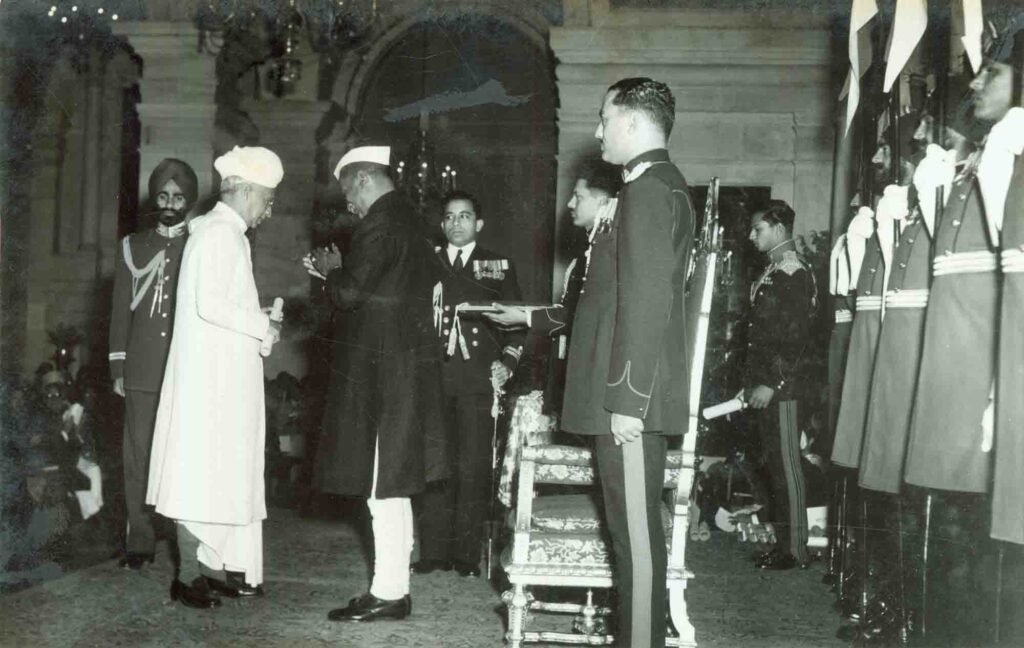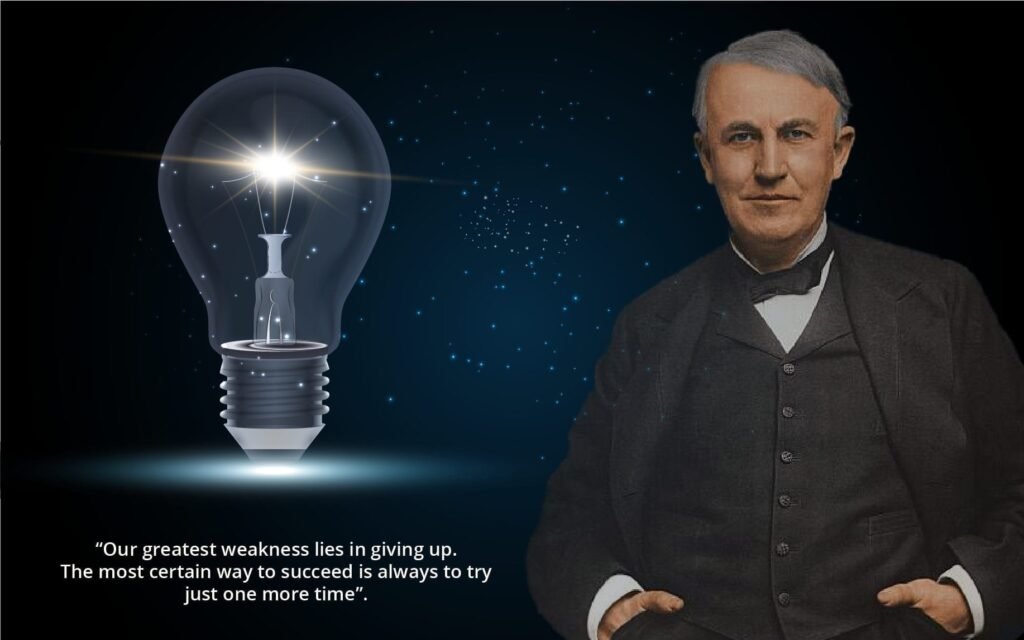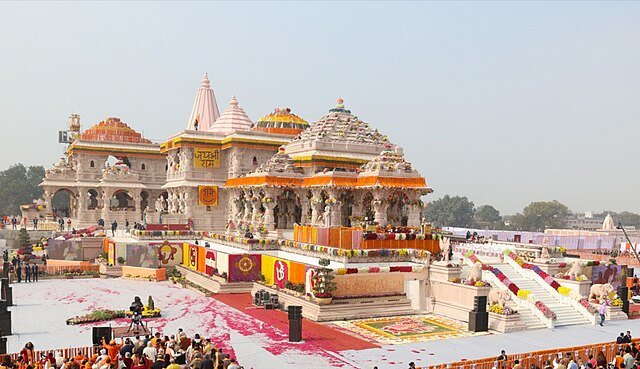
Sarvepalli Radhakrishnan ( introduction )
Sarvepalli Radhakrishnan, a towering figure in the annals of Indian philosophy, education, and statesmanship, was born on September 5, 1888, in the tranquil town of Tiruttani, located in the southern Indian state of Tamil Nadu. His life story is a testament to the transformative power of knowledge, compassion, and the relentless pursuit of wisdom. Radhakrishnan’s enduring legacy continues to inspire generations across the globe.
Sarvepalli Radhakrishnan History
History: Sarvepalli Radhakrishnan’s life unfolded during a period of significant historical change in India. Born in 1888, he grew up during the final decades of British colonial rule, a time when India was seeking its path to independence. These formative years profoundly influenced his intellectual and moral development.
As a young scholar, Radhakrishnan witnessed the tumultuous events of the early 20th century, including the rise of the Indian freedom movement led by figures like Mahatma Gandhi. These events stirred his conscience and deepened his commitment to the ideals of justice, freedom, and self-determination.
His academic journey began with a strong foundation in philosophy, earning a Master’s degree from Madras Christian College and furthering his studies at the University of Madras. This marked the beginning of his illustrious career in academia, where he would later become renowned for his profound insights into Indian philosophy, particularly Vedanta, as well as his ability to synthesize Eastern and Western thought.
Radhakrishnan’s foray into the realm of education and teaching took root during his tenure at various universities, including the University of Mysore and the University of Calcutta. His lectures and writings on philosophy earned him acclaim as a scholar of great distinction.
In 1931, he took on the role of Vice-Chancellor at Andhra University, where he spearheaded educational reforms and sought to cultivate a culture of excellence in higher education. This position allowed him to contribute significantly to the development of India’s academic landscape.
Radhakrishnan’s journey continued with his appointment as Vice-Chancellor of Banaras Hindu University, a position he held with distinction. His intellectual prowess and commitment to education were further recognized when he became the Vice-President of India in 1952 and, subsequently, the President of India in 1962.
As President, Radhakrishnan elevated the office and left an indelible mark on the nation. His tenure was marked by a deep commitment to culture, education, and diplomacy. He gracefully represented India on the global stage, embodying the wisdom and ethos of the country’s rich cultural heritage.
Throughout his life, Radhakrishnan’s profound understanding of philosophy, his passion for education, and his unwavering commitment to public service made him a beloved and respected figure not only in India but worldwide. His legacy continues to inspire scholars, educators, and leaders, standing as a shining example of a life dedicated to the pursuit of knowledge and the betterment of society.
readBiography of Motilal Nehru
Sarvepalli Radhakrishnan Parents & Childhood
Parents: Sarvepalli Radhakrishnan was born to humble parents, Sarvepalli Veeraswami and Sitamma, on September 5, 1888, in the quaint town of Tiruttani in Tamil Nadu, India. His family belonged to the Brahmin caste, and they lived a simple and devout life. Sarvepalli Veeraswami, his father, worked as a small-time revenue official. Sitamma, his mother, was a homemaker who played a crucial role in nurturing young Radhakrishnan’s early intellectual curiosity. Their modest background instilled in him values of frugality, humility, and the importance of education.
Childhood: Radhakrishnan’s childhood was marked by intellectual curiosity and a deep love for learning. He received his early education in Tirupati, Vellore, and Madras (now Chennai). These formative years laid the foundation for his future as a philosopher and scholar.
During his childhood, Radhakrishnan exhibited a remarkable aptitude for academics. His insatiable thirst for knowledge became apparent, and he developed a particular interest in philosophy and spirituality. These early inclinations would go on to shape his entire life’s work.
Growing up in a devout Hindu Brahmin family, he was exposed to the rich tapestry of Indian spirituality and philosophy from an early age. This exposure played a pivotal role in his intellectual development and would later influence his interpretations of Vedanta and his ability to bridge the gap between Eastern and Western philosophies.
Despite the financial constraints of his family, Radhakrishnan’s parents recognized his extraordinary potential and encouraged his pursuit of education. Their unwavering support during his childhood and formative years played a crucial role in molding him into the intellectual giant he would become.
Sarvepalli Radhakrishnan’s childhood laid the foundation for a lifelong dedication to the pursuit of knowledge and wisdom. It was during these early years that the seeds of his future greatness were sown, setting him on a path that would profoundly impact the world of philosophy, education, and statesmanship.
Sarvepalli Radhakrishnan Career
Career: Sarvepalli Radhakrishnan’s career was marked by intellectual brilliance, unwavering dedication to education, and a deep commitment to public service. Over the course of his life, he traversed multiple domains, leaving an indelible mark in each.
- Academic Journey: Radhakrishnan’s academic career began with a strong foundation in philosophy. He completed his Master’s degree in philosophy from Madras Christian College and pursued further studies at the University of Madras. His keen intellect and philosophical acumen soon drew the attention of scholars and students alike.
- Teaching and Scholarship: Radhakrishnan embarked on a career in teaching, holding positions at various prestigious institutions, including the University of Mysore and the University of Calcutta. His insightful lectures and writings on philosophy gained him recognition as a philosopher of great distinction. His ability to synthesize Eastern and Western thought made him a global figure in the world of philosophy.
- Educational Reforms: In 1931, Radhakrishnan assumed the role of Vice-Chancellor at Andhra University. During his tenure, he introduced innovative reforms in education, laying the groundwork for the development of academic excellence in India. His contributions to educational reform would become a hallmark of his career.
- Banaras Hindu University: Radhakrishnan’s reputation as an educationist of great merit led to his appointment as Vice-Chancellor of Banaras Hindu University. Here, he continued to champion educational excellence and fostered an environment conducive to intellectual growth.
- Vice-President of India: In 1952, Radhakrishnan’s career took a political turn when he was elected as the Vice-President of India. His elevation to this esteemed position marked a new phase in his career, combining his intellectual prowess with a commitment to public service.
- President of India: The pinnacle of Radhakrishnan’s political career was reached in 1962 when he was elected as the President of India. His tenure as President was marked by grace, dignity, and a deep dedication to the nation. He played a crucial role in elevating the office of the President, emphasizing culture, education, and diplomacy.
Throughout his career, Radhakrishnan remained a scholar, philosopher, and educator at heart. He brought his profound understanding of philosophy and spirituality to the highest echelons of Indian politics, earning him the admiration and respect of his peers and the people of India. His legacy as a thinker, teacher, and statesman endures as a source of inspiration for generations, exemplifying a life dedicated to the pursuit of knowledge and the betterment of society.
Sarvepalli Radhakrishnan Popularly Known As
Popularly Known As: Sarvepalli Radhakrishnan is most prominently known as a philosopher, statesman, and the second President of India. However, his influence extended far beyond these titles, earning him various other monikers and distinctions:
- Philosopher of Peace: Radhakrishnan’s philosophical works and his commitment to peaceful coexistence and diplomacy earned him the title of “Philosopher of Peace.” He advocated for the resolution of conflicts through dialogue and understanding, both during his presidency and in his subsequent roles as a global thinker.
- Teacher Par Excellence: Radhakrishnan’s deep reverence for education and the teaching profession led to his popular identification as a “Teacher Par Excellence.” His contributions to the field of education and his celebration of Teacher’s Day on his birthday continue to inspire educators and students in India.
- Bridge Builder of East and West: Radhakrishnan’s ability to bridge the gap between Eastern and Western philosophies made him a global figure in the world of philosophy. He was often referred to as the “Bridge Builder of East and West” for his skillful interpretation and integration of diverse philosophical traditions.
- Diplomat and Cultural Ambassador: During his presidency, Radhakrishnan served as India’s cultural ambassador to the world. His diplomatic skills and cultural exchanges with other nations earned him recognition as an exemplary diplomat and cultural ambassador.
- The People’s President: Radhakrishnan’s affable and approachable demeanor as President endeared him to the people of India. He was often referred to as “The People’s President” for his close connection with the citizens and his genuine concern for their well-being.
- Visionary Leader: Throughout his career, Radhakrishnan displayed a visionary approach to education, philosophy, and nation-building. His leadership and forward-thinking earned him the reputation of being a “Visionary Leader.”
Sarvepalli Radhakrishnan’s multifaceted contributions to society and his ability to transcend boundaries, whether cultural, philosophical, or political, have left an enduring legacy. He is remembered and celebrated under these various titles, each reflecting a different facet of his remarkable life and work.
Sarvepalli Radhakrishnan Followed Path Of
Followed Path Of: Sarvepalli Radhakrishnan’s life journey was characterized by a deep commitment to philosophical exploration, education, and public service. He followed a path that left an indelible mark on these areas:
- Vedanta and Spiritual Inquiry: Radhakrishnan followed the path of profound philosophical inquiry, particularly in the tradition of Vedanta. He embraced the teachings of Vedanta, a Hindu philosophical school that emphasizes the unity of the self (Atman) with the ultimate reality (Brahman). This spiritual path guided his thinking and provided a foundation for his interpretations of philosophy and spirituality.
- Synthesis of Eastern and Western Thought: Radhakrishnan was known for his remarkable ability to bridge the gap between Eastern and Western philosophies. He deeply studied both traditions and worked to integrate their insights. This synthesis allowed him to articulate complex philosophical concepts in a way that resonated with a global audience, earning him recognition as a philosopher who transcended geographical and cultural boundaries.
- Academic Excellence: Radhakrishnan’s academic pursuits and teaching career showcased his dedication to the pursuit of knowledge. He followed the path of academic excellence, earning degrees and accolades in philosophy and engaging in intellectual discourse throughout his life. His passion for education and his commitment to fostering intellectual growth became a hallmark of his career.
- Education Reform: As an educator and administrator, Radhakrishnan followed the path of educational reform. He served as the Vice-Chancellor of Andhra University and later Banaras Hindu University, where he implemented innovative reforms aimed at enhancing the quality of education in India. His contributions to education went beyond the classroom and had a lasting impact on the Indian educational system.
- Statesmanship and Public Service: Radhakrishnan’s foray into politics marked another path he followed. He served as the Vice-President and later the President of India. In these roles, he exemplified statesmanship, emphasizing cultural diplomacy and the promotion of India’s rich heritage on the global stage. He pursued a path of public service, upholding the values of justice, peace, and ethical governance.
- Advocacy for Teachers: Radhakrishnan followed a path of advocating for the teaching profession. His deep respect for educators led to the celebration of Teacher’s Day on his birthday in India. He used his influence to highlight the crucial role of teachers in shaping society and nurturing future generations.
Sarvepalli Radhakrishnan’s life was a harmonious blend of philosophical inquiry, educational reform, and public service. He followed the paths of wisdom, scholarship, and statesmanship, leaving a lasting legacy that continues to inspire individuals across the globe. His journey serves as a testament to the power of intellect, ethics, and service in shaping a better world.
Sarvepalli Radhakrishnan contribution to Teacher’s Day
Sarvepalli Radhakrishnan’s contribution to Teacher’s Day is significant and enduring. His role in shaping the way India celebrates Teacher’s Day is rooted in his deep respect for educators and his belief in the transformative power of teaching. Here are the key contributions he made to Teacher’s Day:
- Inspiration for Teacher’s Day: Sarvepalli Radhakrishnan’s birthday falls on September 5th. When he became the President of India in 1962, some of his former students and friends approached him and suggested celebrating his birthday as a way to honor his contributions to education and his exemplary qualities as a teacher. In response, Radhakrishnan suggested that instead of celebrating his birthday, it would be more appropriate to celebrate it as “Teacher’s Day” to pay tribute to all teachers. He believed that teachers should be celebrated, as they play a vital role in shaping the future of the nation.
- Advocacy for the Teaching Profession: Radhakrishnan’s strong advocacy for the teaching profession was evident in his writings and speeches. He saw teachers as the pillars of society and recognized their critical role in nurturing the intellect and character of students. By proposing Teacher’s Day, he aimed to highlight the importance of teachers in the lives of students and in the development of the nation.
- Celebration of Knowledge and Learning: Teacher’s Day in India, celebrated on September 5th, has become a day to honor and appreciate teachers for their dedication, hard work, and positive influence on students’ lives. Schools and educational institutions across India mark the occasion with special ceremonies, events, and activities that express gratitude to teachers.
- Fostering a Culture of Learning: Through the celebration of Teacher’s Day, Radhakrishnan aimed to foster a culture of learning and respect for education in India. He believed that by acknowledging and appreciating the efforts of teachers, society could encourage more individuals to pursue careers in education and contribute to the nation’s intellectual and moral growth.
Sarvepalli Radhakrishnan’s vision for Teacher’s Day has transcended generations, and the tradition of celebrating this day in honor of teachers continues to be a cherished part of India’s cultural and educational heritage. His commitment to education and the teaching profession is a testament to his deep understanding of the pivotal role that teachers play in shaping the future of individuals and the nation.
Sarvepalli Radhakrishnan quotes
here are some notable quotes attributed to Sarvepalli Radhakrishnan:
- “When we think we know, we cease to learn.”
- “The true teachers are those who help us think for ourselves.”
- “Reading a book gives us the habit of solitary reflection and true enjoyment.”
- “A life of joy and happiness is possible only on the basis of knowledge and science.”
- “The worst sinner has a future, even as the greatest saint has had a past.”
- “Man is still the most extraordinary computer of all.”
- “The end-product of education should be a free creative man, who can battle against historical circumstances and adversities of nature.”
- “The true basis of ethics is not sympathy or sentiment but the recognition of law.”
- “The art of life is the most distinguished and rarest of all the arts.”
- “Religion is behavior and not mere belief.”
- “To be a successful teacher, one has to be a good learner.”
- “The worst form of injustice is pretended justice.”
These quotes reflect Radhakrishnan’s profound insights into education, philosophy, ethics, and human nature, making him a source of inspiration for generations to come.
Conclusion
In conclusion, Sarvepalli Radhakrishnan’s life and contributions are a testament to the power of intellect, ethics, and service. Born in a humble family, he rose to become a distinguished philosopher, educator, and statesman whose legacy continues to inspire generations. His journey through history witnessed the transformation of India from a colony to an independent nation, and he played a pivotal role in shaping its intellectual and educational landscape.
Radhakrishnan’s childhood instilled in him a love for learning, and he followed the path of knowledge and spiritual inquiry throughout his life. His ability to synthesize Eastern and Western philosophies earned him global recognition as a philosopher who transcended cultural boundaries.
As an educator, he brought about significant reforms in the Indian education system, emphasizing the importance of quality education and the role of teachers. His advocacy for the teaching profession led to the establishment of Teacher’s Day in India, a tradition that continues to honor and celebrate educators.
In his political career, Radhakrishnan served as the Vice-President and later the President of India. He became a cultural ambassador for the nation, promoting India’s rich heritage on the global stage. His statesmanship and commitment to diplomacy emphasized the values of peace, justice, and ethical governance.
Sarvepalli Radhakrishnan’s life and work are encapsulated in his profound quotes, which reflect his wisdom and enduring legacy. His contributions to philosophy, education, and public service have left an indelible mark on India and the world.
In commemorating Teacher’s Day on his birthday, we not only honor Radhakrishnan’s memory but also pay tribute to the countless educators who shape the future of our society. His legacy reminds us of the transformative power of education and the importance of nurturing the intellect and character of future generations. Sarvepalli Radhakrishnan’s life journey serves as a beacon of knowledge, ethics, and service, inspiring us to strive for a better world through wisdom and education.
General questions of this topic
- Who was Sarvepalli Radhakrishnan?
- Sarvepalli Radhakrishnan was a prominent Indian philosopher, scholar, statesman, and the second President of India. He was born on September 5, 1888, and is celebrated for his contributions to philosophy, education, and diplomacy.
- Why is Sarvepalli Radhakrishnan famous?
- Radhakrishnan is famous for his profound contributions to philosophy, especially his interpretation of Vedanta and his ability to bridge Eastern and Western philosophical traditions. He is also known for his role in Indian politics as the President of India and for advocating for the teaching profession.
- What is the significance of Teacher’s Day in India?
- Teacher’s Day in India, celebrated on September 5th, is significant as it honors teachers and their contributions to society. It is observed on Sarvepalli Radhakrishnan’s birthday, as he was a distinguished teacher and believed in the importance of education and educators.
- What is Radhakrishnan’s philosophy of education?
- Radhakrishnan believed that education should focus on the holistic development of an individual, nurturing both intellect and character. He emphasized the role of teachers in guiding and inspiring students to become responsible and enlightened citizens.
- What were some of Radhakrishnan’s famous quotes?
- Radhakrishnan’s quotes are known for their depth and wisdom. Some famous ones include “When we think we know, we cease to learn,” and “The true teachers are those who help us think for ourselves.”
- How did Radhakrishnan contribute to the field of philosophy?
- Radhakrishnan made significant contributions to the field of philosophy by interpreting complex philosophical concepts, particularly in the Vedanta tradition, in a way that made them accessible to a global audience. His writings and lectures bridged the gap between Eastern and Western philosophies.
- What is Radhakrishnan’s legacy today?
- Radhakrishnan’s legacy lives on through his ideas, writings, and the celebration of Teacher’s Day in India. He continues to inspire scholars, educators, and individuals who seek wisdom and a deeper understanding of life and philosophy.
- Did Radhakrishnan receive any awards or honors during his lifetime?
- Yes, Radhakrishnan received numerous awards and honors, including the Bharat Ratna, India’s highest civilian award, in 1954. He also received the Peace Prize of the German Book Trade in 1961 and was named an Honorary Member of the British Royal Order of Merit in 1963.
- How did Radhakrishnan’s background influence his philosophies?
- Radhakrishnan’s upbringing in a simple Brahmin family influenced his values of humility and spirituality. His exposure to Hindu philosophy from a young age played a crucial role in shaping his interpretations of Vedanta and his commitment to education and ethics.
- What impact did Radhakrishnan have on Indian society and culture?
- Radhakrishnan’s contributions to education, philosophy, and diplomacy had a profound impact on Indian society and culture. He elevated the status of teachers and promoted India’s cultural heritage on the global stage, leaving a lasting legacy of knowledge and ethics
https://en.wikipedia.org/wiki/Sarvepalli_Radhakrishnan
also readThomas Edison Biography






